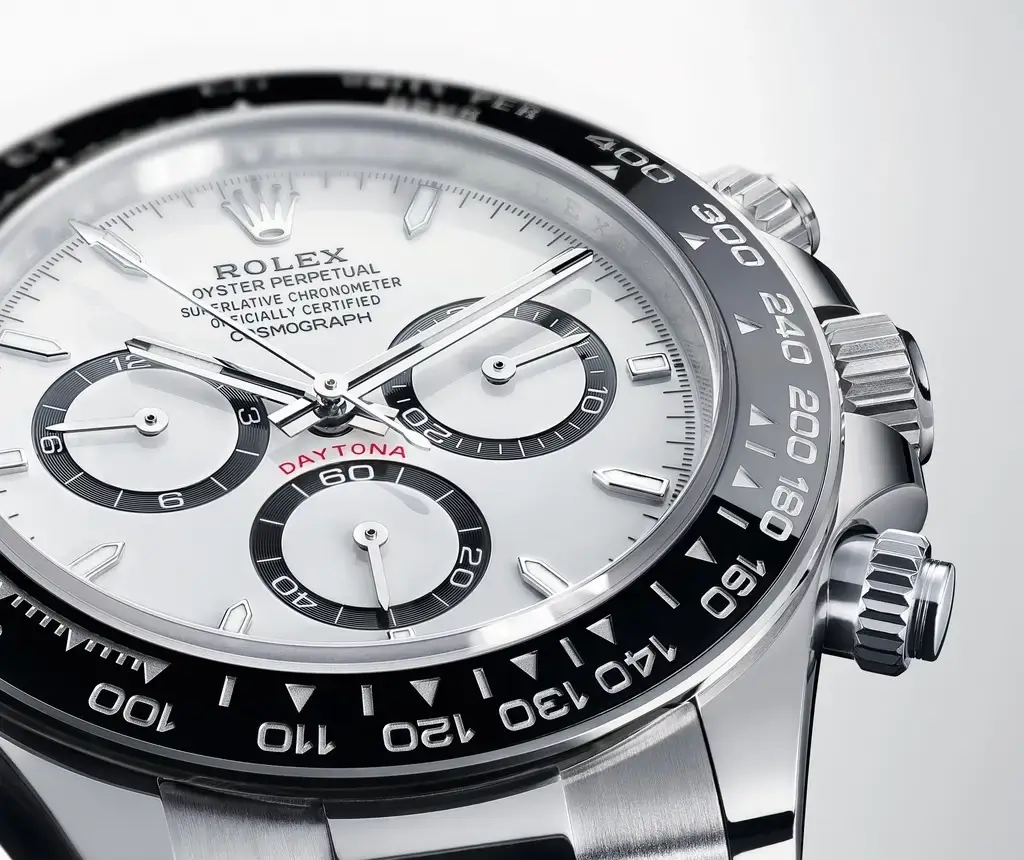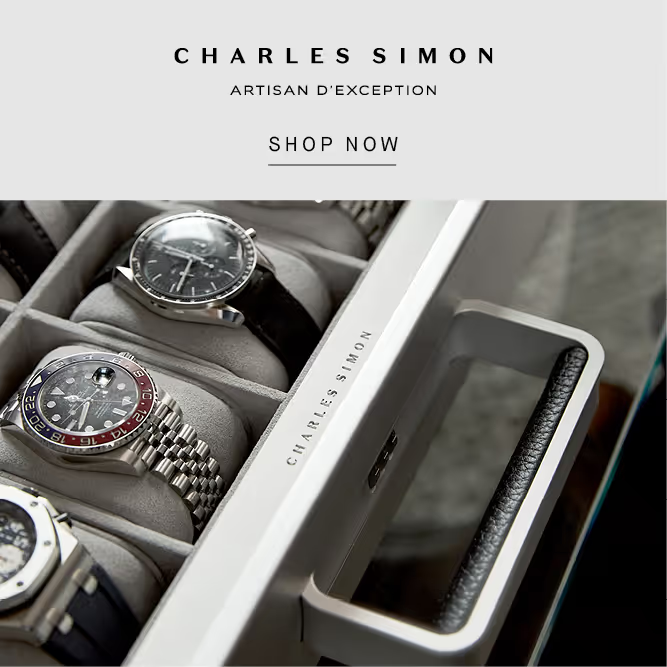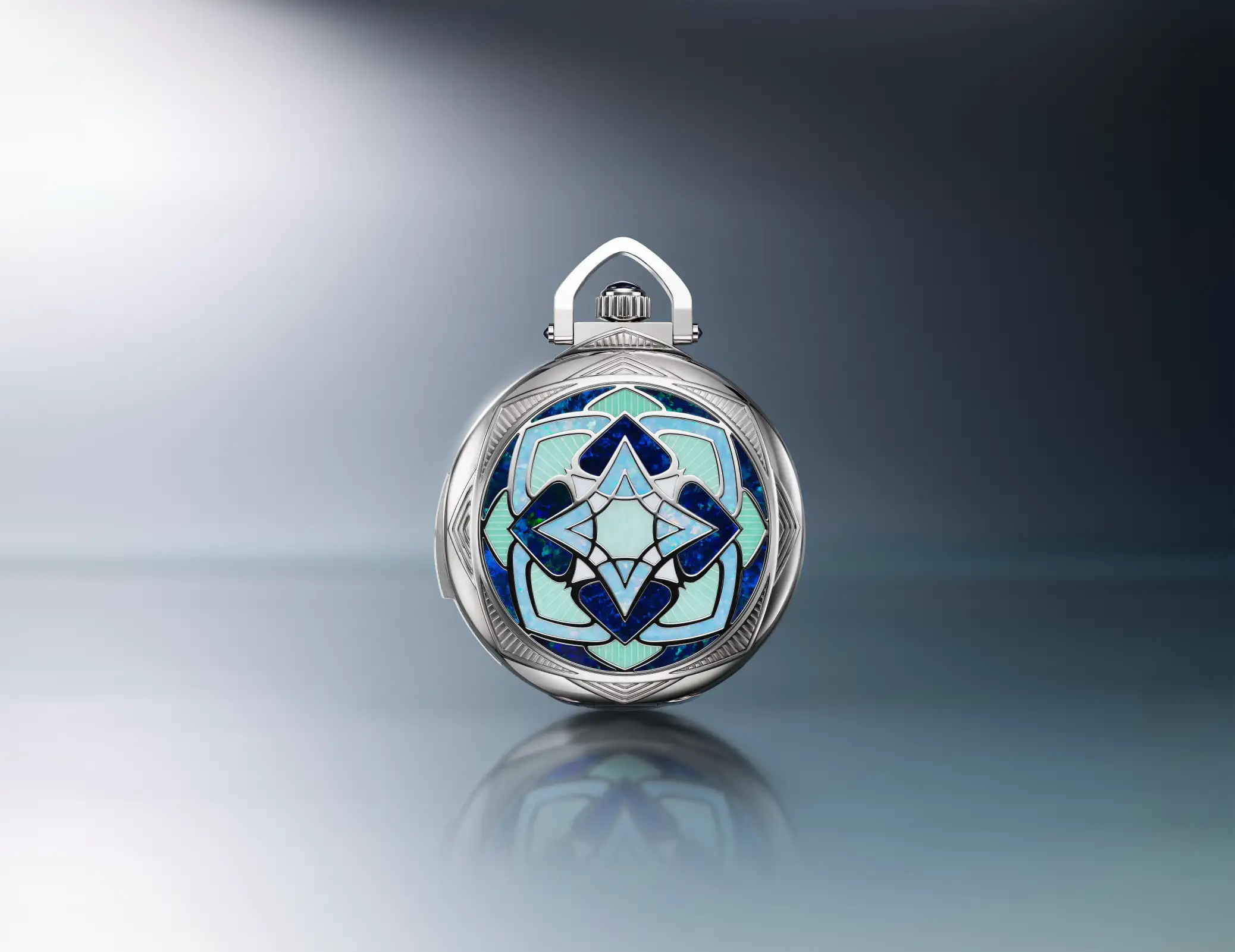.avif)
How To Buy A Rolex At Retail - Tips From An Ex-Sales Associate
Although things have changed dramatically, there is a clear, albeit expensive path to getting a Rolex at retail. Here we go.
I worked in a Rolex boutique for two years.
It’s surreal to think about sometimes, after being the person who felt uncomfortable walking in and nervously asking to try on a Rolex Submariner, I was on the other side of the coin. I had some great experiences in my time there, and it's launched me into a career I really love, but I can't help but feel disillusioned with the way Rolex, and Patek Philippe for that matter, is handled. They are true veblen goods and selling them is fascinating. But can you actually buy a Rolex in store? It is possible and I want to lift the curtains on what is a secretive process. I'll also tell you what really happens behind closed doors so that maybe you can increase your chances of picking up your dream Rolex. I've also got a pretty good idea on how to make the system fair, so read on and let's get stuck in!

Can You Buy A Rolex In Store?
I get asked this question once a day, seriously. And the answer is generally, yes, you can absolutely buy a Rolex in store (at an authorised dealer). There is a caveat however. It all depends on what you ask for.
If, for example you're after a 36mm two tone DateJust with a diamond bezel then you may be in luck. Mention this to your sales associate and you'll have them salivating at the mouth. It's these less desirable models that you can often buy straight off the bat. They might even have them in the display case without the infamous 'For Exhibition Only' sign. More often then not, however, your SA will have some watches hidden away in the safe that they can offer. Should you say the right things.
But what if you want to buy a Daytona at retail? Or a GMT Master ii Submariner or desirable Skydweller? The Process gets a little more complicated.

How Can I Buy A Rolex At Retail?
It's crazy to think, but 15 years ago it wasn't much different than going to the supermarket and picking up a bunch of bananas. Although things have changed dramatically, there is a clear, albeit expensive path to getting a Rolex at retail. Here we go.
- Visit your AD regularly, but don't be annoying. You need to make yourself known to the sales associates in a friendly and approachable way. Drop by on your lunch break, ask if they have any events coming up and attend (this is a good way to meet the management of the AD) but most importantly, don't pester your AD with questions like 'when do you think you will have something for me?' or 'Please can I have a Daytona and I've been waiting so long'. The moment you get on the AD's nerves, they will stop being your advocate.
- Be a well rounded watch enthusiast. If you're interested in other brands, the AD will be more likely to take you seriously. As an added bonus, if your AD is a multi-brand boutique, they will think you're more likely to buy something other than Rolex too.
- Start small. Don't burst into the AD and start asking for a Daytona or a GMT straight away. Work your way up there by showing interest in things less common. Maybe a 34mm Date-just or an OP 41. They want to know that they can sell the less desirable stuff to you too.
- Buy something else. I hate to say it, but if you want a Rolex, you probably have to buy something else first. It sucks, but it's true. The boutiques will never admit it but they will wait for you to buy a Tudor, Hublot or whatever else before they offer you a Rolex. They need to move the less desirable brands and Rolex is their leverage.
If this doesn't seem fair to you, it's because it isn't. But fear not fellow watch nerds, we have more power than you think. We spend the money that keeps the boutiques alive, and It’s our choices that can steer the ship!
With that in mind, and before I get too political (rise up!!), I propose a better way to allocate watches. No more interest lists, no more exploitation. And no more smug boutique managers.

There's A Better Way To Allocate Rolex Watches
Raffles are the way.
Yes, a raffle for the opportunity to spend your money sounds ridiculous, and it is. But in an industry where there isn’t enough supply to satisfy demand. This is the best way.
I recently entered the raffle to buy the M.A.D.1 Green from MB&F and to my surprise, I won. Out of 30,000 entrants, me, with zero credibility or purchase history, got an allocation. It made me feel spectacular. Like I was special somehow. For somebody who has felt intimidated by the boutique experience for a long time, it’s remarkable. I’ll be a fan of Max and MB&F for life.
Here’s how it would work.
1. Customers will go into the boutique as usual, but instead of putting our names on an interest list, we will sign up for alerts for the specific watch we are looking for.
2. Every time the boutique gets a shipment, they will send out an email to the people who have signed up if their desired watch was in the shipment.
3. You then have 24 hours to put your name in the hat for the watch. If you don’t take action at this stage, then you won’t be in the draw. It’s encouraging you to engage, to put in the work to get your watch.
4. The raffle is drawn, and you’re invited to come and buy. If you miss out, then the entries reset, and you wait for the next shipment to come in. (Then you go back to step 2).
Simple as that.
Where things get interesting is at step three. It allows the boutique to increase the engagement and effort the customer has to put in. If I got an email saying I had a chance for a Daytona, but I had to text in saying I was still wanted to be included in this month's raffle, I could. Or I could ask to be notified next time.
If someone just wanted to put their name on a list and not put any effort in, that’s fine, they just won’t get the watch.
Although this process takes steps to eliminate the predatory practice of ‘bundling’ or requiring the purchase of a watch you don’t want, it won’t eliminate it completely. But the opportunity to do so will be more difficult to articulate. They will have to blatantly say it to you.
You will have a notification that you won the raffle after all.
Fully automated and Transparent
To make it completely fair, I propose a system that will pick a winner at random, with a slight odds' adjustment for variables. Perhaps you get more entries if you come and visit the boutique, or sign up for their email list, for example. Encouraging engagement and effort will filter out the tire kickers and reiterate your passion for the watch.

Will The Boutiques Change The Rolex Allocation System?
Well, the immediate decline in sales of less desirable brands would be the main reason. If you didn’t have to buy several other pieces just to get allocated what you want, then the boutiques would lose revenue in the short term.
On the other hand, if we weren’t so disillusioned with the industry, then maybe we would be more inclined to learn about other brands we wouldn’t otherwise be interested in.
There is a massive reputation gain to be had here.
What do you think? Should this be the way forward?
Should the person who has saved up for years, and worked his entire life be given the chance to buy what he wants? Instead of getting pushed away because he can’t afford to buy two watches he doesn't want before he gets his Daytona?
I think so.
Cya in the next one. x



This story was created in partnership with our good friends at .

.avif)

.png)


.avif)